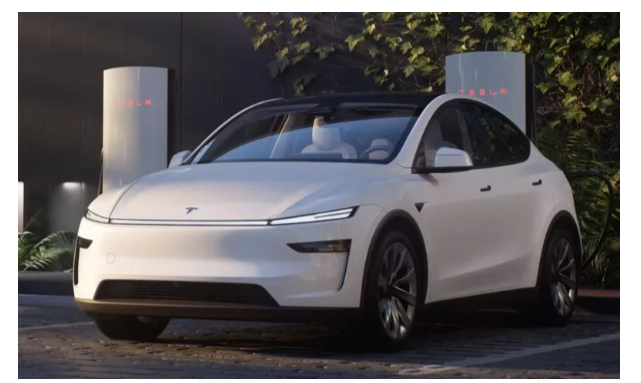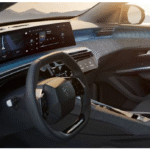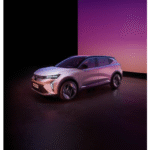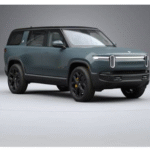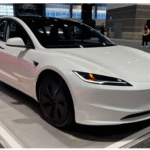Electric Car Water Usage – What You Must Know
When someone hears the term electric car, their mind jumps to batteries, chargers, and clean energy. But then comes a strange question that keeps popping up: Do electric cars need water? It seems like an odd thing to ask. After all, they don’t have radiators or tailpipes, right? Or do they?
Let’s unpack this mystery. In this blog, we’ll go deep into the science, the mechanics, and even the psychology behind why this question keeps showing up. We’ll also show every part of an electric car that may use water, and what water does—or doesn’t do—in an electric vehicle.
Why Are People Asking: Do Electric Cars Use Water?
Water in Electric Vehicles: A Common Misconception
People are used to gasoline and diesel vehicles. Those cars absolutely need water—to keep their engines cool via radiator systems. They also need coolant (a mix of water and antifreeze), and water is used in windshield washers, air conditioning systems, and even sometimes in emission control systems.
Now that electric vehicles (EVs) are here, people naturally ask: Does an electric car need water like a gas car?
Here’s why the question matters:
- Many assume no engine = no heat = no need for water.
- Some are curious about electric vehicle safety—what if water causes short circuits?
- Others are trying to understand electric vehicle maintenance and cost-saving differences.
Let’s dive deeper.
Electric Vehicles vs Gas Cars: How Water Plays a Role

As the table shows, water is still very relevant in electric vehicles. But where and how it’s used is very different.

Source: https://www.tdk.com/en/featured_stories/entry_065-motor-controller.html
Do Electric Cars Have Radiators or Coolant Systems That Use Water?
Liquid Cooling Systems in Electric Vehicles: Yes, They Use Water-Based Coolants
Yes, many modern electric cars use radiators and water-based coolant systems—especially for the battery and power electronics.
Why?
Electric motors don’t generate as much heat as combustion engines, but batteries can overheat, especially during:
- Fast charging (DC charging)
- Long-distance driving
- Hot climates
What’s in the coolant?
Electric vehicles use a glycol-based coolant, which is mostly water mixed with ethylene glycol (antifreeze)—very similar to traditional cars.
Examples of Electric Vehicles that use water-based cooling:
- Tesla Model S, 3, X, Y
- Ford Mustang Mach-E
- Chevrolet Bolt
- BMW i4
- Hyundai Ioniq 5
Where Else Do Electric Cars Use Water? Surprising Locations
1. Battery Thermal Management System
- Most critical use of water in electric vehicles.
- Prevents overheating and ensures longevity of the battery.
- Uses water-based coolant to circulate around the battery pack.
2. Cabin Air Conditioning System
- Same as in gas cars.
- May produce condensation (water), especially in humid climates.
- Uses refrigerants but may need water drainage systems.
3. Windshield Washer Reservoir
- Simple water and cleaning fluid mix.
- Needed year-round for safe visibility.
- No different from gas or hybrid vehicles.
4. Electric Motor Cooling (in some designs)
- In advanced electric vehicles, even motors are cooled with water-based fluid.
- Keeps them efficient during heavy loads or high performance.
5. Onboard Charger and Power Electronics
- Can also overheat.
- Some use liquid cooling with water-glycol mixes.

EV Thermal System (Hyundai Ioniq 5)
Source: https://www.ioniqforum.com/threads/the-ioniq-5-cooling-systems-diagrams.44015/
Do Electric Vehicles Use Water for Regenerative Braking or Acceleration?
No. Water is not used for braking or acceleration systems in electric cars. Those systems are:
- Electronically controlled
- Use regenerative energy, not fluid-based systems
- Water plays no direct role
However, brake cooling systems in high-performance electric vehicles (like the Porsche Taycan) may use air or fluid cooling, which can include liquid-cooled calipers in rare cases.
Can Water Damage an Electric Car?

The Waterproofing of Battery Packs in Electric Vehicles
Source: https://www.linkedin.com/pulse/waterproofing-battery-packs-electric-vehicles-neeraj-kumar-singal-wyfcc
What Happens If an Electric Vehicle Gets Wet?
Electric cars are very well sealed and protected:
- Battery packs are waterproof
- Charging ports are shielded
- Cables and connectors meet IP ratings (Ingress Protection)
So rain, floods, or washing your electric vehicle will not harm it, unless there’s:
- Severe flood damage
- Submersion beyond design limits
Water & Short Circuits?
Impossible under normal conditions. Electric vehicles have advanced insulation, seals, and shutdown protocols.
Psychology Behind the Question: Why Are People Still Unsure?
1. Past Experience with Gas Cars
People are used to checking:
- Water in radiators
- Coolant levels
- Steam from overheated engines
2. Fear of Electricity + Water
Water and electricity are a dangerous mix in households. People assume the same applies to electric vehicles.
3. Marketing Misunderstanding
Electric vehicles are sold as “zero-maintenance” and “fluid-free,” leading to confusion.
4. Social Media Myths
Videos of electric vehicles catching fire or EVs in water sometimes spread false fear about water safety.
Do Electric Vehicles Consume Water in the Driving Process?
No. Electric vehicles do not consume water while driving like fuel-based cars do indirectly.
Combustion engines burn fuel, and this results in water vapor emissions through the exhaust. In contrast:
- Electric vehicles emit no water vapor.
- No water is “burnt.”
- The only visible use of water is for cooling and cleaning.
Long-Term Water Maintenance in Electric Vehicles: What You Need to Check
What You Might Refill or Service:
- Coolant level for battery and electronics (every 4–6 years).
- Windshield washer fluid (as needed).
- Air conditioning condensate drain (only if clogged).
What You Don’t Need to Check:
- No radiator cap to check water.
- No water-based emissions system.
- No steam-producing engine parts.
Do Some Electric Vehicles Avoid Water Altogether?
Yes. A few entry-level electric vehicles and older models use air cooling only, which avoids water systems entirely.
Examples:
- Nissan Leaf (older models) – air-cooled battery
- Volkswagen e-Golf
- Fiat 500e
These are simpler but can overheat in extreme climates or under fast charging.
Water in Electric Vehicle Manufacturing: The Hidden Use
Electric cars indirectly rely on water during manufacturing:
- Battery production involves chemical mixing and cooling.
- Paint shops use vast amounts of water.
- Parts cleaning and assembly cooling systems use water in factories.
While this doesn’t affect the user, it is part of electric vehicle environmental footprint often overlooked.
Infographic Summary: Where Do Electric Vehicles Use Water?
Here’s a simple table to share or remember:

Final Verdict: Do Electric Cars Need Water?
Yes — but only in specific systems, and not for combustion. Electric cars do need water, but not in the same way as traditional vehicles. It’s used in:
- Battery cooling
- Cabin comfort systems
- Windshield cleaning
- Sometimes motor cooling
They don’t consume water. They just use it to manage heat and safety.
Key Takeaways: Everything About Electric Vehicles and Water
- Electric cars use water-based coolants to protect batteries and electronics.
- No water is burned or released during driving.
- Electric vehicles are waterproof and safe, even in the rain or car washes.
- Coolant service is minimal, unlike gas cars.
- Air-cooled electric vehicles exist, but with some trade-offs.
- Factory production of electric vehicles does use large amounts of water.
- Windshield washer fluid is one of the few regular water-related tasks.
Conclusion: Why It’s Good You Asked
The fact that people are still asking, “Do electric cars need water?” shows that we’re still learning how electric vehicles differ from old technology. It’s not a dumb question—it’s a smart and necessary one in this transition era.
Understanding water use in electric vehicles gives you:
- Better control over maintenance.
- Confidence in safety.
- Insight into how electric mobility really works.
